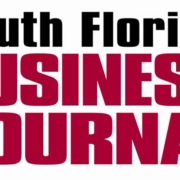What GCs Want From Outside Counsel As Virus Rages On
By Michele Gorman
As some general counsel curb outside counsel work or seek alternative fee arrangements, law firms are trying to accommodate those needs in order to keep valuable clients amid shrinking demand, while empathizing with companies experiencing coronavirus-related cash flow issues.
Ben Gross’ legal department at retailer rue21 has limited its outside counsel use to time-sensitive and essential matters, and has changed the terms on payments, which he said firms understand. And for now, he’s placed longer-term projects “on ice” to help the company weather the economic challenges facing a sector hit hard by the crisis.
“Essentially it’s a small loan from the law firms going forward, just until we get out of it,” he said.
General counsel said they noticed that some firms embraced the uncharted territory of the pandemic early on, offering discounts, setting up COVID-19 teams and resource centers, and hosting complimentary webinars to guide their clients. Working together to share the burden, general counsel and firm lawyers are drawing on their relationships to agree on discounts, alternative fee structures or lengthened payment periods.
“When you have a good relationship with your outside counsel, they’re going to work with you in thick and thin,” Gross said. “They know that in ordinary times I pay my bills on time … but they also understand that every retailer right now has tremendous cash flow issues until we get back to normal.”
Joe Morford, a managing partner at Tucker Ellis LLP, also underscored the importance of relationships and assisting where he can, especially as some longtime clients approach the firm searching for ways to reduce their outside counsel costs.
“Those are circumstances where of course we’re going to help because these are our clients and that’s what you do with your good relationships in life,” he said.
Among the requests he’s seen: clients seeking temporary fee reductions, asking to limit work to the most essential tasks, and moving back a payment date, with the intention of catching up by the end of the year, Morford said.
And some lawyers predict these requests from in-house counsel might only be the beginning.
As businesses adjusted to the work disruptions brought on by the outbreak during the past few months, most general counsel have been focused on protecting the well-being of their employees and businesses. But soon they’ll have to look at the volume of unanticipated legal costs stemming from COVID-19 and adverse impacts to the businesses they support and then determine whether and how to readjust their budgets, said Jim Gallagher, general counsel at Perspecta Inc.
“It’s highly likely that every legal department will have to revisit their budgets and revisit their approach to the discounts … even the ones that have already been pre-negotiated,” he said.
Discussions about different arrangements can also help firms grow relationships and demonstrate strengths. For example, if a client promises a certain volume of work or to try out other areas of the firm, Tucker Ellis will sometimes offer a larger discount than the one requested, Morford said.
Similarly, lawyers at Heise Suarez Melville PA have been encouraging alternative fee arrangements, which shareholder Luis Suarez said have been “extraordinarily well-received” as clients seek certainty.
An alternative fee arrangement, or AFA, typically refers to any method other than the straight billable hour to pay for outside counsel. The dominant AFA is a fixed or flat fee, but there is an assortment of other methods — contingency, fee cap, success bonus — that attorneys can explore.
In April, Heise Suarez signed two fixed-fee arrangements, one for several months and the other for a shorter period of time. And in another instance, a major national chain approached the firm for work related to unfulfilled lease payments.
“They don’t want to pay high hourly rates; they wanted that certainty of, ‘You’ll get me to this point in the litigation for this dollar amount, and then after that, get me to the next point,'” said shareholder Mark Heise. “I think that certainty in this time of uncertainty is very satisfying to clients.”
He added, “Nobody wants to be out on a limb and spending a bunch of money when they don’t know if they’re going to have money to come in the door; whereas if they say, ‘Here’s X dollars right now,’ it’s gone, it’s out of their mind.”
Since it opened in January, Heise Suarez planned to provide AFAs. As Suarez pointed out, any legal budgets that clients had set at the beginning of the year are likely irrelevant now.
If they’re not already doing so, Cedar Realty Trust Inc. general counsel Adina Storch encouraged firms to offer AFAs — maybe a monthly subscription model for unlimited access to COVID-19 crisis teams that can answer questions for a flat, monthly rate. “It’s like paying it forward: When the world returns to a greater state of normal … all of these goodwill gestures I would imagine would come back to these firms, and they would distinguish themselves in terms of legal client service from their peers,” she said.
Storch said it might require biting the bullet in the short term and supporting negative cash flow to cultivate relationships. But, she added, “if law firms are able to get in the door at drastically reduced rates or even offer certain support services for free — like paralegal support, even printing and mailing support — I really do think that that is something that will pay dividends when the world goes back to normal.”
At Tucker Ellis, Morford stands by his lawyers’ dedication to their clients and is optimistic many of the adjusted structures will return to normal arrangements. But each client’s needs are different. Morford said his firm isn’t working through new pricing arrangements with every general counsel or all industries; rather, the need has mostly come from companies such as those in the hospitality and retail sectors that have shut down indefinitely. In the meantime, he encouraged other firm leaders to keep in mind that most clients genuinely need assistance and aren’t looking to take advantage of their outside counsel.
“For the most part, these are good companies with good people in the in-house counsel office who actually need help,” Morford said. “When this improves, we expect that things will return to a more baseline position.” –Editing by Kelly Duncan and Emily Kokoll.





